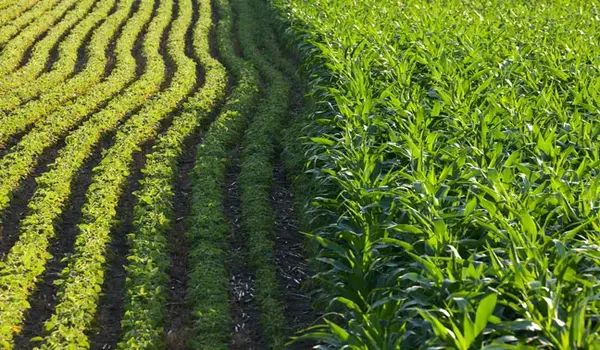Introduction Bulkagrochem is committed to advancing agricultural efficiency and sustainability through practices that promote soil health and maximize crop productivity. As a leader in providing high-quality agricultural inputs, we support farmers in implementing effective crop management strategies, including crop rotation. Our innovative products and solutions are designed to enhance soil fertility, reduce pest pressures, and ensure optimal crop performance. By emphasizing the importance of crop rotation, Bulkagrochem helps farmers achieve long-term agricultural success and environmental sustainability. Benefits of Crop Rotation Improved Soil Health: Crop rotation helps maintain soil structure and fertility by varying the types of plants grown. Different crops contribute different organic matter and nutrient profiles, which supports a balanced soil ecosystem. Pest and Disease Management: Rotating crops disrupts the life cycles of pests and diseases that thrive on specific plant species. This reduces the reliance on chemical pesticides and lowers the risk of pest and disease outbreaks. Enhanced Nutrient Utilization: Different crops have varying nutrient requirements and root structures. Rotation allows for more efficient use of soil nutrients and reduces nutrient depletion, leading to better overall soil health. Reduced Soil Erosion: By alternating crops with different root systems and growth habits, rotation helps prevent soil erosion and maintains soil integrity. Increased Crop Yields: Improved soil health and reduced pest pressures contribute to higher and more consistent crop yields over time. Weed Control: Crop rotation can help manage weed populations by interrupting their growth cycles and reducing their ability to become established. Reduced Soil Compaction: Different crops and their root structures help in alleviating soil compaction, improving water infiltration and root growth. Sustainable Farming Practices: Rotation supports sustainable agriculture by enhancing biodiversity, reducing dependency on chemical inputs, and promoting ecological balance. Main Reasons for Crop Rotation Nutrient Management: Different crops have unique nutrient needs and root systems that affect soil composition. Crop rotation helps balance nutrient levels in the soil, preventing nutrient depletion and supporting healthy crop growth. Disease and Pest Prevention: Rotating crops interrupts the life cycles of pests and diseases that target specific plants, reducing their prevalence and minimizing the need for chemical treatments. Soil Fertility Enhancement: Various crops contribute different types of organic matter to the soil. For example, legumes can fix atmospheric nitrogen, enriching the soil with this essential nutrient for future crops. Improved Soil Structure: Different root structures and growth patterns from diverse crops help improve soil aeration and reduce compaction, leading to better water infiltration and root development. Economic Benefits: By optimizing soil health and reducing the need for chemical inputs, crop rotation can lead to cost savings and increased profitability for farmers. Conclusion Crop rotation is a fundamental practice in sustainable agriculture that offers numerous benefits for soil health, pest management, and overall crop productivity. Bulkagrochem supports farmers in adopting crop rotation techniques by providing high-quality agricultural products that complement these practices. By rotating crops each season, farmers can improve soil fertility, manage pests and diseases more effectively, and enhance their overall yields. This approach not only contributes to the long-term sustainability of farming operations but also promotes environmental stewardship and resource conservation. Bulk Agrochem remains dedicated to helping farmers implement best practices that lead to successful and sustainable agricultural outcomes.
Bulkagrochem
Submit your contact number & get exciting offer
Bulkagrochem.com
Bulk Purchase & Get Bulk Discount
Share your number to receive customized bulk pricing, availability updates, and exclusive offers directly via WhatsApp.

Recommended Products



